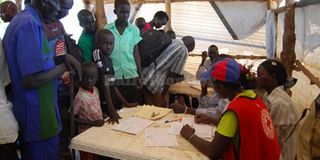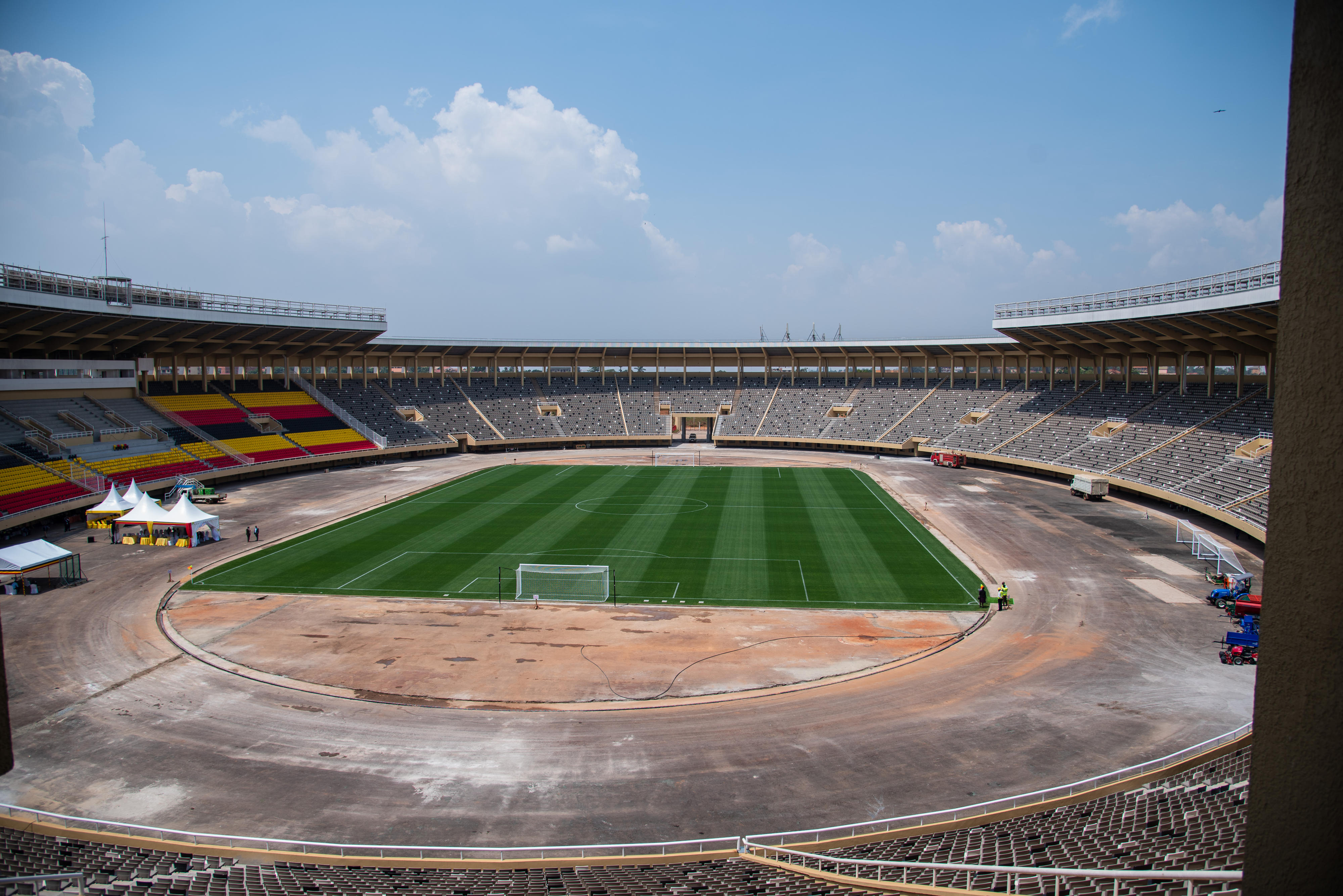Fresh clashes force 2,800 S. Sudanese refugees into Uganda

Some of the South Sudanese refugees register at Dzaipi settlement camp in northern Uganda recently. PHOTO BY FELIX WAROM OKELLO
Kampala. At least 2,840 South Sudanese refugees have fled to Uganda in the last two weeks following violent clashes between government and opposition fighters in Jonglei and Western Equatoria States.
According to a statement issued by the United Nations High Commissioner for Refugees, there was fighting in Yambio, the capital of Western Equatoria State, where Ugandan soldiers hunting the Lord’s Resistance Army rebels have their headquarters.
“Refugees are arriving in Uganda from South Sudan tired and hungry due to the ongoing food insecurity in many parts of the country. Some of the refugees are reporting having walked for days in order to reach safety. Intense fighting is being reported in Yambio and Jonglei while in other areas, militias are reportedly burning down villages, looting, destroying farms, kidnapping youth and committing acts of sexual assault,” the statement reads.
Background
Fighting in Yambio broke out in January between government soldiers and the South Sudan National Liberation Movement, a militia, and has since displaced thousands of people.
The SSNLM is led by ex-SPLA commanders from Western Equatoria. They signed a preliminary peace agreement with the government in November last year, but the deal has not yet to been implemented.
UNHCR says there is an increment of over 500 refugees compared to the previous two weeks. “New arrivals are disproportionately young and female. In Kiryandongo, 91 per cent of new arrivals are children under the age of eighteen and female adults,” the statement says.
Also, this week, a total of 253 Burundian refugees arrived in Uganda, fleeing Bujumbura and its neighbouring areas like Kirundo province. “Refugees are reporting that armed groups are looting, killing civilians, committing acts of sexual and gender-based violence and kidnapping youths,” UNHCR says
Burundi’s crisis was triggered by Nkurunziza’s controversial decision in April last year to run for a third term, which he went on to win in a July election.
More than 400 people have been killed and more than 240,000 have left the country to escape the violence.




